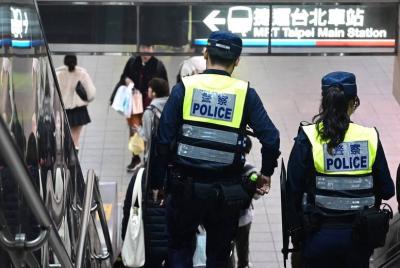National Cheng Kung University (NCKU) recently launched a research project to investigate the possible health threats of nanotechnology.
The Integration of Biomedical and Nanotechnology Systems Project will create a molecule simulation to probe any potential negative effects of nanotechnology, the university said.
The results of the project may offer insights for designing medicines and clinical treatment to preven adverse side effects.
Statistics from the Industrial Technology Research Institute showed that the product value of nanotechnology in Taiwan had exceeded NT$300 billion (US$8.8 billion) as of last year, the school said.
However, the safety of nanotechnology has not yet been confirmed, the school said, adding that several research projects had suggested nanotechnology may pose a threat to human health.
“Most of the simulation software currently used for nanotechnology research and its effect on the human body only supports the computation of either inorganic material or organic molecules. NCKU is the first institute to achieve a breakthrough that combines the simulation of organic and inorganic substances,” university president Michael Lai (賴明詔) said during a ceremony to announce the project, with assistance and cooperation from IBM’s Taiwan branch, last Thursday.
The collaboration makes NCKU the fifth university in Taiwan to cooperate with the company.
Lai said he believed the project would “lead to new discoveries in the field of simulated testing on the interaction of nano substances and bio-molecules.”

Beijing could eventually see a full amphibious invasion of Taiwan as the only "prudent" way to bring about unification, the US Department of Defense said in a newly released annual report to Congress. The Pentagon's "Annual Report to Congress: Military and Security Developments Involving the People's Republic of China 2025," was in many ways similar to last year’s report but reorganized the analysis of the options China has to take over Taiwan. Generally, according to the report, Chinese leaders view the People's Liberation Army's (PLA) capabilities for a Taiwan campaign as improving, but they remain uncertain about its readiness to successfully seize

Taiwan is getting a day off on Christmas for the first time in 25 years. The change comes after opposition parties passed a law earlier this year to add or restore five public holidays, including Constitution Day, which falls on today, Dec. 25. The day marks the 1947 adoption of the constitution of the Republic of China, as the government in Taipei is formally known. Back then the Chinese Nationalist Party (KMT) governed China from Nanjing. When the KMT, now an opposition party in Taiwan, passed the legislation on holidays, it said that they would help “commemorate the history of national development.” That

Taiwan has overtaken South Korea this year in per capita income for the first time in 23 years, IMF data showed. Per capita income is a nation’s GDP divided by the total population, used to compare average wealth levels across countries. Taiwan also beat Japan this year on per capita income, after surpassing it for the first time last year, US magazine Newsweek reported yesterday. Across Asia, Taiwan ranked fourth for per capita income at US$37,827 this year due to sustained economic growth, the report said. In the top three spots were Singapore, Macau and Hong Kong, it said. South

Police today said they are stepping up patrols throughout the Taipei MRT system, after a social media user threatened to detonate a bomb at an unspecified station this afternoon. Although they strongly believe the threat to be unsubstantiated, Taipei Metro police and the Railway Police Bureau still said that security and patrols would be heightened through the system. Many copycat messages have been posted since Friday’s stabbing attacks at Taipei Main Station and near Zhongshan MRT Station that left three dead and 11 injured, police said. Last night, a Threads user in a post said they would detonate a bomb on the Taipei